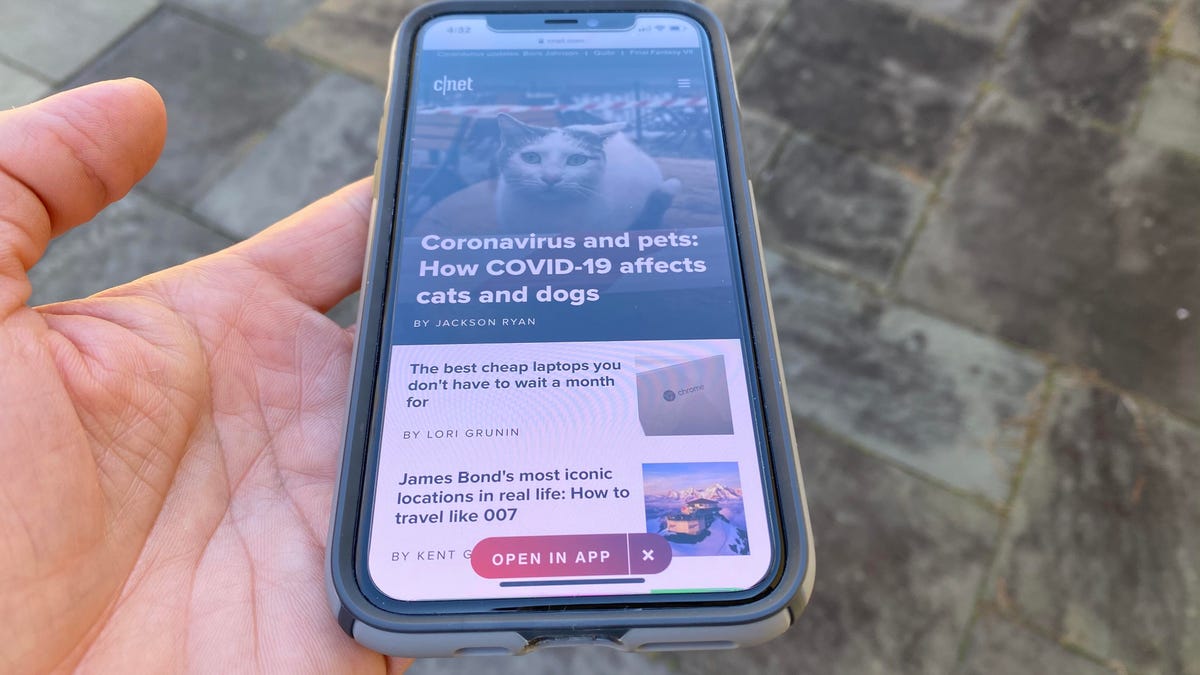 Why You Can Trust CNET
Why You Can Trust CNET The OtterBox antimicrobial screen protector is now available
Before the pandemic, OtterBox unveiled an EPA-registered screen protector designed to kill 99.9% of bacteria from the surface of your phone. Now you can get it.

I've been using OtterBox's antimicrobial Amplify screen protector for four months.
Back in January at CES in Las Vegas, the folks at OtterBox stuck a new Amplify Glass screen protector on my iPhone 11 Pro. It didn't look any different from other screen protectors, but it had an interesting feature: According to OtterBox, the Corning glass was infused with EPA-registered silver-ion antimicrobial technology that would kill 99.9% of surface bacteria.
Now, almost three months later, with the world a different, scarier place, the new OtterBox antimicrobial screen protector is available and more likely to find a receptive audience, even at its high list price of $50.
The technology itself isn't new, but the company says it's the first EPA-registered glass protector on the market. To be clear, OtterBox isn't marketing it as a coronavirus killer (Covid-19 is a virus, not bacteria, which can either be harmful or beneficial). "The antimicrobial property of Amplify screen protectors is embedded into the glass so it is able to maintain its damage resistance, optical clarity and touch sensitivity," the company says. However, a disclaimer notes, "Amplify Glass with antimicrobial technology does not protect users or provide any direct or implied health benefit."
In other words, OtterBox doesn't want to get sued if you get sick -- whether you contract COVID-19 or any other illness. But if you're one of those people who's paranoid about all those tiny microbes living on your phone's screen, this may just give you a little peace of mind, even if you clean your phone regularly.
After all, a quick wipe of your screen probably isn't getting it as clean as you think. At CES, OtterBox ran a bacteria test on the phone screen of CNET's Alison DeNisco Rayome, who'd wiped her screen the day before. With a score of 469 RLU, her screen failed the test. Otterbox told her the pass limit for a hospital operating room is 100, while that for a patient room is 250.
I also use the Speck Presidio Pro case, which Speck says has antimicrobial protection.
Read more: Best iPhone 11 and 11 Pro cases to buy for 2020
I can't tell you whether the Otterbox Amplify screen protector with antimicrobial technology has saved me from illness. But I will say it has held up quite well over three months and has remained completely unblemished with no visible scratches or cracks. A couple months ago I also started using a Speck Presidio Pro case with Microban antimicrobial protection, so now I've got antimicrobial tech all over my phone. (Otterbox is also selling a Defender Series case with antimicrobial protection for the iPhone 11 series and Samsung Galaxy S20 series phones.) Of course, the best thing you can do is wash your hands and avoid touching your face.

